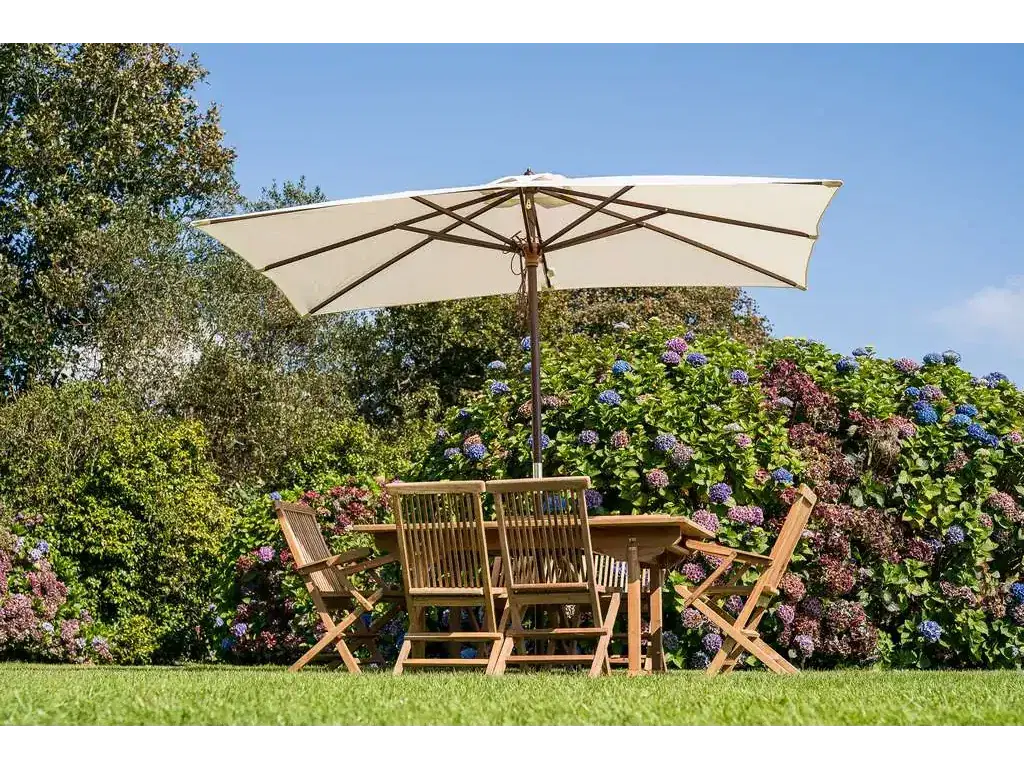A garden parasol is an essential piece of outdoor equipment that enhances comfort and style, making it possible to enjoy outdoor spaces during sunny weather without being exposed to harmful UV rays. These parasols, which are also known as outdoor umbrellas, serve a practical function by providing shade and protection from the sun, while also adding a decorative element to gardens, patios, and balconies. With their ability to create cool, shaded areas, garden parasols help transform outdoor living spaces into comfortable retreats, ideal for relaxation, dining, or entertaining.

The primary function of a garden parasol is to block the sun’s rays and provide shelter from the heat. During hot summer days, sitting under a parasol offers relief from the harsh sunlight, allowing people to spend more time outdoors without the discomfort of direct sun exposure. In addition to offering shade, garden parasols also help protect sensitive skin from harmful UV rays, reducing the risk of sunburns and long-term skin damage. By keeping temperatures cooler underneath, a parasol can make outdoor areas much more pleasant, whether you’re lounging by the pool, hosting a barbecue, or simply enjoying a good book in the garden.
Most garden parasols are made from durable, weather-resistant fabrics like polyester, acrylic, or canvas. These materials are specifically chosen for their ability to withstand sun exposure, resist fading, and provide protection against the elements. Polyester is a popular choice because it is lightweight, strong, and resistant to water, making it suitable for a variety of weather conditions. Acrylic fabrics offer enhanced UV protection and are often used in high-quality parasols due to their ability to maintain their color and integrity for longer periods. The canopy is supported by a frame, typically made from either aluminum, Garden parasol steel, or wood. Aluminum frames are lightweight and rust-resistant, making them ideal for modern, low-maintenance designs. Steel frames offer strength and stability, particularly in larger parasols, while wooden frames, though heavier, provide a more traditional, elegant aesthetic that can complement natural surroundings.
One of the key features of many garden parasols is their adjustability. As the sun moves throughout the day, the parasol can be tilted or rotated to ensure maximum shade coverage. Tilt mechanisms allow users to angle the canopy to block the sun at different times of the day, while some larger models feature rotating bases, making it easier to adjust the parasol’s position without needing to move the entire structure. This adaptability ensures that the shaded area remains in the optimal position, providing continuous protection from the sun’s rays. Additionally, many parasols come with a crank handle or pulley system that makes it easy to open and close the umbrella, which is especially useful for larger, freestanding models.
The base of a garden parasol plays a crucial role in its stability. To prevent the parasol from tipping over, especially in windy conditions, many models feature weighted bases that can be filled with sand or water. A heavy base keeps the parasol anchored to the ground, ensuring it remains upright even when there is a breeze. For smaller parasols that are designed to be mounted on tables, the table itself provides the necessary stability, eliminating the need for a separate base. Regardless of the design, a stable base is essential for maintaining the safety and functionality of the parasol.
A garden parasol not only serves a functional purpose but also adds to the visual appeal of an outdoor space. Available in a variety of colors, patterns, and shapes, garden parasols can complement a range of garden themes and personal tastes. From bright, bold colors to more neutral tones, there is a parasol to suit any outdoor setting, whether it’s modern, traditional, or rustic. By combining practicality with style, a garden parasol can become a key feature in transforming a simple outdoor area into an inviting and comfortable living space.
In conclusion, a garden parasol is a valuable addition to any outdoor area, offering protection from the sun, enhancing comfort, and adding an aesthetic element to gardens, patios, and balconies. With a variety of materials, designs, and features available, a garden parasol can meet the needs of any outdoor enthusiast, providing both functionality and style for years to come.